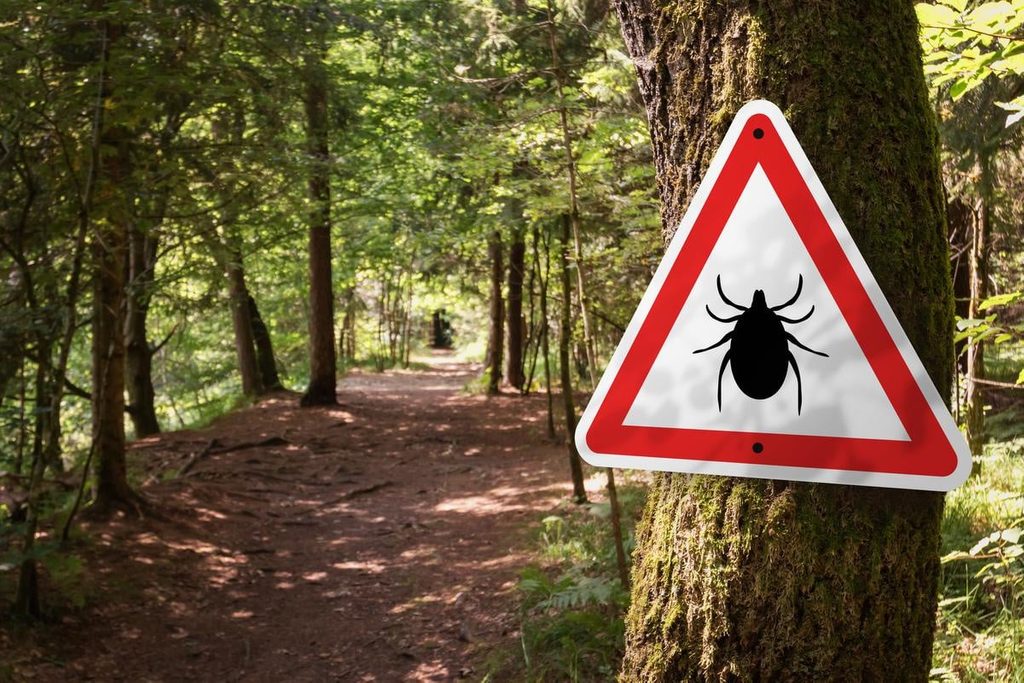Certain parts of Europe are risk zones for tick-borne encephalitis, a viral disease that can trigger brain inflammation. Some regions have already found exceptionally high numbers of ticks and animals infected with the virus this year.
Importantly: tick-borne encephalitis is different from Lyme disease, which can also be transmitted by ticks. Lyme involves an infection with a bacterium, which can be treated with antibiotics. Tick-borne encephalitis is caused by a virus for which there is no treatment, but there is a vaccine.
Severe tick-borne encephalitis progresses in two stages, Steven Van Den Broucke, infectious disease expert at the Institute of Tropical Medicine (ITG), told De Standaard. "Many people infected with the virus will not feel anything. Those who do get sick from it will feel flu-like, with fever and muscle aches."
After that initial phase, patients generally feel better, but some also start feeling worse a little later. The brain inflames. Depending on which parts are affected, people can get confused, have impaired consciousness, convulsions or paralysis. "The brain inflammation can cause permanent deafness or concentration problems."
Still rare in Belgium
Between 2012 and 2020, nearly 1,350 Europeans did not fully recover from their tick-borne encephalitis – which comes down to over 5% of all reported cases. Additionally, 93 people (0.3%) died from tick-borne encephalitis. "The risk of severe tick-borne encephalitis increases with age," said Van Den Broucke. "Children are less at risk, but they too can get sick."
In Belgium, tick-borne encephalitis is extremely rare: three people became infected in 2020, and none in 2021 – compared to the hundreds of reports from, for example, Czechia (589), Sweden (533), Germany (417) and Austria (135) in 2021.
Still, the risk area in Europe has been increasing over the last decade: the number of reports of tick-borne encephalitis rose from 2,224 to 2,949 (+33%) in the EU/EEA between 2012 and 2021, peaking during the warm spring and summer of 2020 (3,740 reports).
This year, too, the evolution is not going in the right direction: worrying signs are coming from hotspot Bavaria, where both ticks and the virus are closely monitored. The Süddeutsche Zeitung reports that 50% to 100% more ticks were found in eastern Bavaria in March and April than last year – record numbers.
Related News
- Number of people diagnosed with Lyme disease on the rise, study shows
- Summer is coming... and so is tick season
For Steven Van Gucht, virologist of the Sciensano national health institute, there is too little alertness around tick-borne encephalitis as travel sickness. "Among doctors and travellers alike. When you travel within Europe, you do not automatically think about travel vaccinations."
However, in Austria, for example, the entire population is recommended to be vaccinated against tick-borne encephalitis, he stressed. "Every summer, that country is overrun with unvaccinated tourists going for nature walks."
Van Gucht added that he finds it surprising that the disease has so far hardly occurred in Belgium. "All the ingredients are present here: we have the sheep tick in our country, the species that spreads the virus. Belgium is also home to voles, which are the hosts that infect the sheep tick with the virus. And we have forests and nature reserves where the sheep ticks thrive."
Global warming
Why tick-borne encephalitis occurs in Bavaria and not in the Ardennes is unclear, but it might just be a matter of time before the disease comes to Belgium as well, he added. "Or there is a factor at play in the spread of the disease that we do not yet know."
Climate change, too, will further fuel the spread of the disease in parts of Europe, Van Gucht said. "You can already see this in the Alps. Sheep ticks used to be there only in the valleys. With warming, the tick is also found at higher altitudes."
Ticks need heat and humidity, meaning there is nothing to fear in dry areas in Spain, for example. "But look at Scandinavia. There, the tick is already benefiting from global warming too."
How to protect yourself
Anyone travelling to high-risk areas and going into nature there, for example to camp or hike, would do well to get vaccinated, said Van Den Broucke. "To be well protected, you need two doses, with a month between the two shots. Even after vaccination, you can still get sick, but it will be less serious."
However, the vaccination is not free: one dose costs €40.
In addition to vaccination, preventing tick bites is best done by wearing long trousers and sleeves, and rubbing bare skin with tick repellent.
When a tick bite occurs, the virus is transmitted immediately. This is different from Lyme disease, where the tick passes on the pathogenic bacteria only after a day. "Still, checking your skin and removing ticks quickly is best, because Lyme is also a risk."

